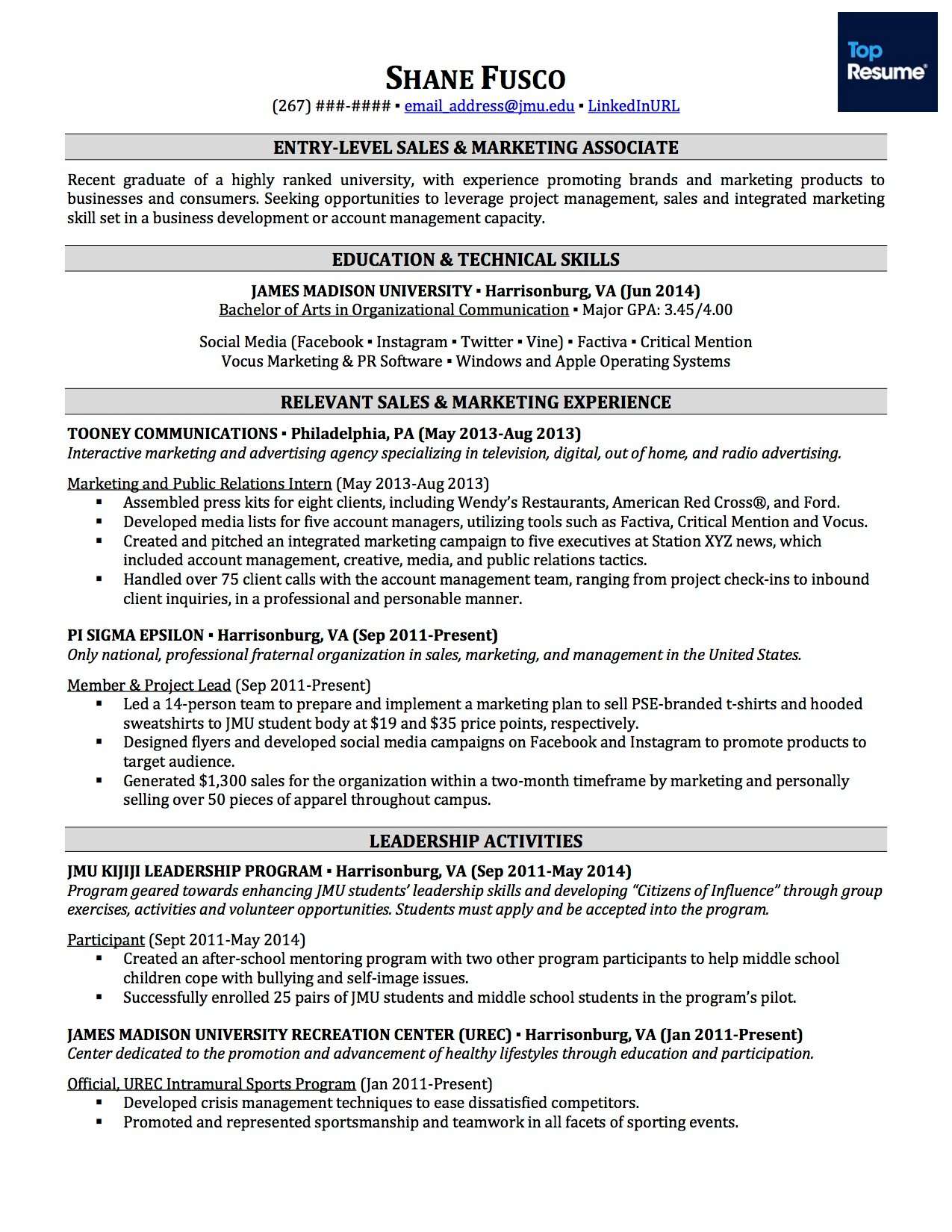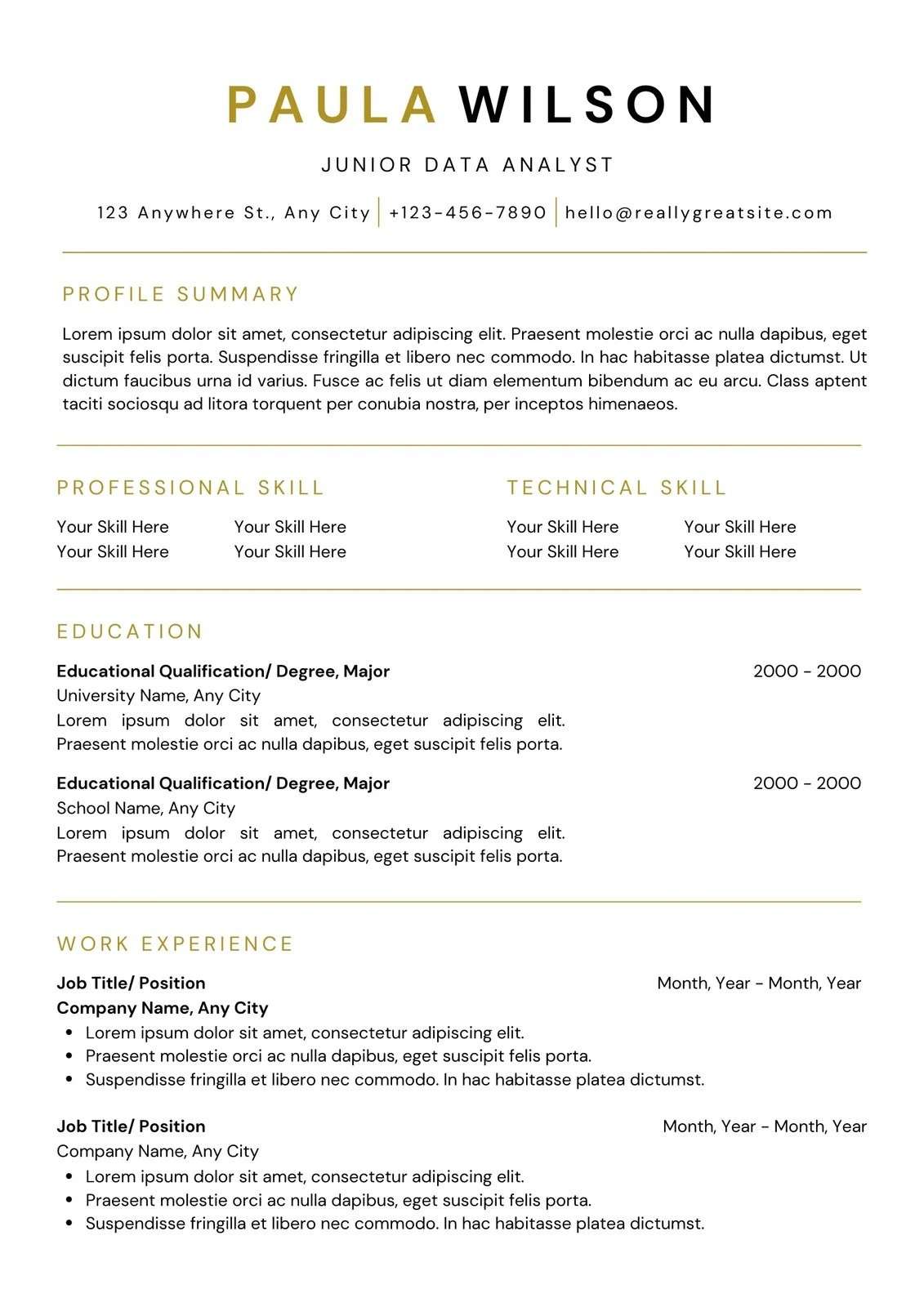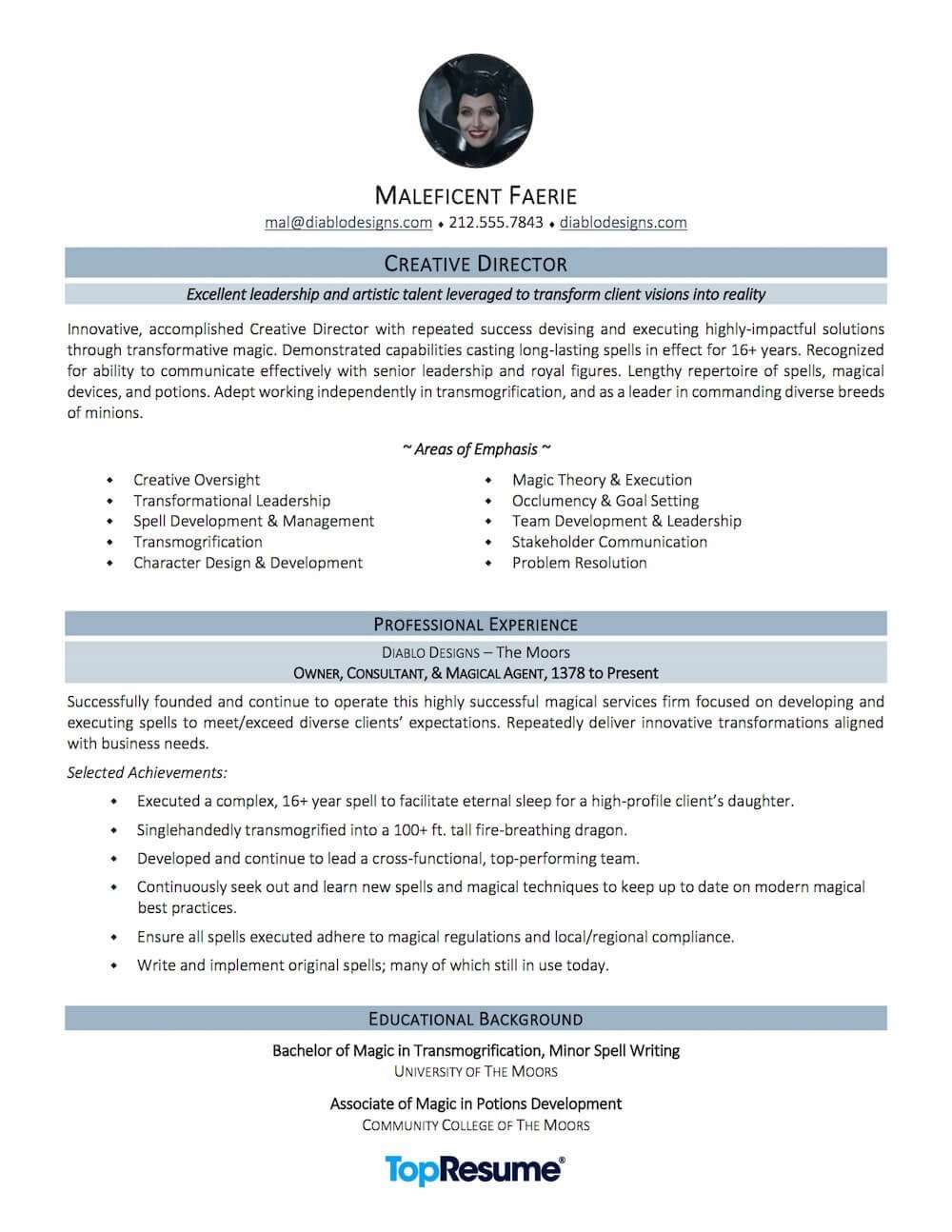Written By: Michael Gardon | Edited By: Mike Jelinek
Writing a solid resume is the first step in finding a job, whether you’re looking for your dream job or just the next stop on your way up the corporate ladder. You have several resume formats to choose from, and the right one to use depends on the job you're applying for, your work experience, and other factors. This guide will help you learn about all the different types of resumes and when to use them.
If you need help writing your resume, we also reviewed the best resume writing services to help you out.
Are you ready to start applying for jobs? We recommend starting your job search on ZipRecruiter. ZipRecruiter is free for job seekers and you can apply for jobs with a single click! You can also upload your resume to ZipRecruiter’s resume database so that recruiters and employers can find you!
The Different Types of Resumes And When To Use Them
Below are the five most common types of resume formats you can use when crafting the perfect resume. Each one has its benefits and drawbacks. Use the information below to help you determine the right type of resume for your next job search.
Chronological Resume
A chronological resume is a resume format that lists work and education experiences in chronological order from the most recent to the oldest. In the education section of your resume, you would list any degrees earned from the highest honor and work backward.
Elements to include in a chronological resume include your personal and contact information, a brief summary, employment and education history, and a skills section, including soft skills and hard skills.
Not every work experience needs to make it on your chronological resume. Only list experiences in the last 10-15 years. Hiring managers aren’t interested in your part-time job in high school. Also, only include skills on your resume that are relevant to the open position.
Pros and Cons of Using a Chronological Resume
Pros:
- Highlights a linear career path
- Is a familiar format
- May be preferred by some hiring managers and employers
Cons:
- Makes it hard to hide resume gaps or career path detours
- Emphasizes experience, which is a problem for entry-level workers
Who Should Use a Chronological Resume
Chronological resumes are perfect for individuals who have a consistent, extensive work history without any employment gaps. If your previous jobs show a steady, linear progression through your field, a chronological resume will help highlight that. Some employers will also ask for a work history as part of your job application.
Chronological Resume Sample

Source: topresume
Functional Resume
A functional resume is a resume format focused more on highlighting your skills and expertise over work experience. This resume format is preferable for individuals who have little work experience, an unfocused work history, lapses in employment, or are in the middle of a career change. New graduates would also benefit from using a functional resume.
In a functional resume, your experience is grouped by skill categories instead of specific employment history listings. You can also list your employment history in a functional resume, but there’s no need to expand on past jobs beyond your job title, your employer, and work dates. A functional resume should include elements like personal and contact information, a resume summary, relevant skills grouped into skill categories, and work and education history.
Pros and Cons of Using a Functional Resume
Pros:
- Highlights skills as well as experience
- May elevate your most relevant qualifications by featuring them higher on the page
- Disguises any employment gaps
Cons:
- May give the impression that you lack a steady work history
- Depending on your formatting choices, these resumes can be hard for applicant tracking systems to read
- May not be as effective as combination resumes, which provide some work history in addition to skills
Who Should Use a Functional Resume
Workers who have gaps in their resumes, relatively little work experience, and those who want to change jobs might find a functional resume format useful. However, be aware that recruiters and hiring managers will still look for your work history. Write a carefully crafted cover letter to highlight transferable skills and other qualifications that might make up for a lack of experience.
Related: How To Create A Resume With No Work Experience
Functional Resume Sample

source: canva
Combination Resume
As the name suggests, a combination resume combines other resume formats to highlight both your chronological work history and your skills and expertise.
A combination resume is a good choice if you have transferable skills across a varied range of work experiences or if you have relevant technical skills you’ve used over your entire career. This resume format would include elements like personal and contact information, a brief summary, a detailed technical skills section, and work and education history.
Pros and Cons of Using a Combination Resume
Join The Break Community
Pros:
- Offers many of the best features of chronological and functional resume formats
- Highlights both skills and work history
Cons:
- May be repetitive if you have similar skills that apply to different positions
- Combination resumes can be longer than chronological and functional formats
Who Should Use a Combination Resume
Mid-career professionals and workers with lots of related experience and skills might consider this format. Just be prepared to be ruthless about what you include in your combination resume. Don’t go back more than 10 or 15 years in your work history and be sure to emphasize skills that are most relevant to the job.
Combination Resume Sample

Source: Topresume
MINI RESUME
A mini resume isn’t as common as the other formats but has its place. Mini resumes are truncated versions of your full resume, highlighting your work experience in the form of a short bio. Mini resumes don’t even need to be on a full-size piece of paper. It could be printed on a handout the size of a business card or notecard.
Mini resumes are to have on hand if there’s a chance encounter and you need something to pass out. This is a good format to use if you attend networking events or conferences where people exchange business cards. A mini resume gives you something to pass out that’s more than just your name and phone number. Include elements like your name, contact information, and a bite-sized bio, including any relevant experience or certifications.
Pros and Cons of Using a Mini Resume
Pros:
- A great networking tool for trade shows, conferences, and professional groups
- If you include a link to your website or LinkedIn profile, can act as a lead generator
Cons:
- Not a replacement for a full-length resume
- An old-fashioned business card may be sufficient
Who Should Use a Mini Resume
Anyone who’s planning to attend a professional event or conference can benefit from bringing their short-form resume along. Just be aware that it isn’t a substitute for your full-length CV.
TARGETED RESUME
A targeted resume is a resume format that is customized specifically to the open position you are pursuing. Every element of your resume, from your work and education history to your skills, align with the requirements listed in the job description. A targeted resume is the format to use if you’re seeking a specific position within a company. It’s not the type of resume you send out to several companies hoping to land a job.
If you’re thinking of using a targeted resume, take time to study the job posting, paying attention to the skills required (and desired), duties, and any other information that you can use when crafting your resume. Include any keywords mentioned in the job listing in your resume. Research the company, too, for insight into its values.
Targeted resumes are great if your skill set and work history match up well with the job description.
Pros and Cons of Using a Targeted Resume
Pros:
- Shows the hiring manager that you’re interested in this specific job, not just any open position
- Appeals to applicant tracking systems, which typically look for keywords associated with the position
Cons:
- None, unless you forget to customize your resume for the next job opening
Who Should Use a Targeted Resume
Short answer: everyone. Targeted resumes are the best way to demonstrate that your skills, training, and experience make you an ideal candidate.
How To Know What Type Of Resume You Should Use
The best resume format for you depends on your career level, work history, skill set, and qualifications. The job you're targeting will also play a role.
To determine which resume type to use, ask yourself the following questions:
-
How much related work experience do I have? If you have several years of steady employment in the industry and your career path shows regular promotions and several years at each employer, a chronological resume or combination resume may be a good choice.
-
What are my most relevant skills and qualifications? Read the job description in the listing and figure out which skills, certifications, and abilities are most desirable for this job. If you can check off most of those qualifications, consider a functional resume format (or a combination resume with a skills section).
-
What are the employer's specifications? Sometimes, employers will share their application requirements. When they do, you should follow instructions. For example, they might say that they want someone with experience in the industry, which would indicate a chronological or combination resume.
-
What are the expectations for my industry? Different industries have different rules for job seekers. For example, Georgetown Law's Office of Career Strategy notes that law students should list their education first and keep their resume to one page.
-
How will I be submitting my resume? If you're applying via email or online system, remember to format your resume so that it's readable by the resume bots. Skip the fancy formatting, images, and other visual elements.
Where To Get Help With Your Resume
Whether you're writing your first resume or buffing up a mid-career CV, you don't need to go it alone. We've reviewed the best paid experts, free tools, and online resources to help you make a good impression on the hiring manager.
The Best Resume Writing Services: Sometimes, it pays to call in the professionals. If you're not getting interviews and you're not sure why, resume writing services can help. Many come with a free trial or money-back guarantee.
The Best Resume Builders: These online tools can help you optimize your resume for applicant tracking systems, customize them for a specific job, or start an entirely new document from a template. Most have free versions.
The Best Resume Templates: To make a positive impression, your resume needs to be professionally (and consistently) formatted. These free and low-cost resume templates can help.
After your resume is polished and ready to go, you may be looking for new job opportunities. To help you out, our team has reviewed the top job posting sites.
Frequently Asked Questions
WHAT ARE THE MOST COMMON TYPES OF RESUMES?
The three most common resume formats are the chronological resume, the functional resume, and the combination resume. You may also see references to the mini resume, which is a short summary of your skills and experience intended to be passed out at conferences and tradeshows. And, a targeted resume is any type of resume that is customized for a specific job.
WHAT IS THE BEST TYPE OF RESUME?
The best resume type depends on your career goals and work experience. Chronological resumes are the most common format and are perfect if you have a long work history with no gaps. If you don't have much work experience, a functional or combination resume may be a better option. Choose a resume format that matches your experience, the job, and the employer's requirements.
WHAT ARE THE THREE MOST COMMON RESUME STYLES?
The three most common resume styles are chronological, functional, and combination. Each resume type has pros and cons. For example, a chronological resume format may be a poor choice for an entry-level worker or a career changer but an excellent choice for someone with extensive work experience in their field.
HOW FAR BACK SHOULD A RESUME GO?
The work history listed on your resume should only go back 10-15 years unless it's relevant to the job position. Be aware that including more work history may reveal your age and expose you to bias.
Bottom Line
There is no one best resume type or format. You can choose different resume styles for different jobs, employers, or phases of your career. The most important thing is to look for opportunities to show the hiring manager why you're the best candidate for the job.
Now that you know what type of resume to use, you can polish your resume and start applying for jobs! We recommend starting your job search on ZipRecruiter!













